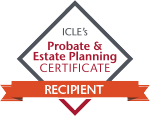
Homicide
Delivering Outstanding Results Since 1987
Homicide Defense Attorneys in Kalamazoo
Levine & Levine Has an Outstanding Success Rate
Facing murder or manslaughter charges is terrifying. Prosecutors tend to throw everything they have at these cases. A homicide conviction carries some of the most severe penalties of any violent crime. Though the death penalty is banned in Michigan, you still may face a lifetime in prison without parole. With your life at stake, you must take these charges seriously. Do not assume that because you believe your innocence is self-evident that the courts will agree with you. Instead, secure trusted, reputable legal representation as soon as possible from Levine & Levine.
Do not leave anything to chance. Contact Levine & Levine at (269) 218-8880 or connect with us online to discuss your case with a Kalamazoo murder defense lawyer.
Our Kalamazoo homicide defense lawyers have over a century of experience handling these types of cases in Michigan, and we offer free case evaluations. We are prepared to put our extensive knowledge and skill to work for you. The local legal community highly respects us, and we have excellent relationships with many prominent legal professionals in the area. As a practice, we are well-known for our intellectual approach and for never backing down from a fight. We take our cues from the Constitution and the Bill of Rights and always fight to protect your best interests.
Types of Homicide Cases
Murder or homicide charges refer to the unlawful killing of another person. These charges are very serious, and the burden of proof is on the prosecution to prove that a true homicide actually occurred. However, just being accused of homicide can seriously damage your reputation, and it has been noted that juries are implicitly biased against defendants in violent crime cases, regardless of guilt.
In Michigan, there are two main classifications of homicide, murder 1 and murder 2. Prosecutors usually charge open murder, which includes murder 1 and 2.
Other types of murder charges include those that accompany OWI charges and felony murder charges.
First Degree vs. Second Degree Murder Charges
First degree murder is the most serious of the homicide cases, and it refers to the premeditated and deliberate killing of another person. You may also face first degree murder charges if someone is killed during the commission of certain other crimes, such as arson, child abuse, criminal sexual conduct, robbery, or home invasion. If you face first-degree murder charges, you should discuss your case with a skilled attorney to better understand why you have been charged this way and what you can do to defend yourself.
Second degree murder is a lesser charge than first degree murder, but it can still result in a lifelong prison sentence. While manslaughter is a heat of passion killing, done before the defendant had time for their "blood to cool," Murder 2 involves a state of mind that intended to kill or knew that consequences of behavior were likely to cause death.
Involuntary vs. Voluntary Manslaughter
There are two types of manslaughter charges in Tennessee: involuntary and voluntary manslaughter.
Voluntary manslaughter involves a killing that occurs without premeditation but with the intent to cause serious bodily harm or in the heat of the moment (sudden passion) under circumstances that would provoke a reasonable person to act impulsively. Voluntary manslaughter implies an intentional act resulting in death but lacks the element of premeditation or prior planning that is characteristic of murder.
In contrast, involuntary manslaughter occurs when a person unintentionally causes the death of another due to reckless or criminally negligent behavior. Unlike voluntary manslaughter, there is no intent to cause harm. Involuntary manslaughter often involves actions where the perpetrator did not intend to kill but acted in a way that disregarded the safety of others or engaged in behavior posing a significant risk of harm.
In both cases, the key factor distinguishing these crimes from murder is the absence of premeditation or malice aforethought. Instead, they involve different levels of intent or negligence leading to an unintended death.
Courts in Tennessee consider various factors, including the perpetrator's mental state, actions, and the circumstances surrounding the incident, to determine whether the offense aligns with voluntary or involuntary manslaughter. The penalties and legal consequences for each can differ based on the specifics of the case and the severity of the offense.
Legal Defenses Against Homicide Charges
In Tennessee, as in many jurisdictions, there are various legal defenses that can be used against homicide charges. It's important to note that the applicability and success of these defenses can vary widely based on the specific circumstances of the case. Here are some potential defenses:
- Self-Defense or Defense of Others: Tennessee law allows individuals to use reasonable force, including deadly force, to defend themselves or others from imminent danger of death or serious bodily harm. The force used must be proportional to the threat perceived.
- Defense of Property: Deadly force can be justified in Tennessee when it's reasonably necessary to prevent the commission of a felony involving force, or to prevent a trespasser who's attempting to enter a habitation or property unlawfully.
- Accident or Misfortune: If the death occurred accidentally and without intention, it might be a defense against a homicide charge. For instance, if a death resulted from a genuine accident or unforeseen circumstance, it might not constitute a criminal offense.
- Lack of Intent: Homicide charges often require proof of intent. If the defense can demonstrate that there was no intent to cause harm or that the death was accidental, it could be a defense against certain degrees of homicide charges.
- Alibi: If the defendant can provide evidence or witnesses showing they were not at the location of the crime when it occurred, it can serve as a defense against the charges.
- Mistaken Identity: If the defense can prove that the accused was mistakenly identified as the perpetrator and was not actually involved in the crime, it can serve as a defense.
- Insanity or Mental Incapacity: Defendants might argue that they were not mentally capable of understanding the consequences of their actions or distinguishing right from wrong at the time of the homicide. This defense involves proving that the defendant was legally insane at the time of the crime.
Every homicide case needs to be treated with care and meticulous attention to detail. With so much at stake, every aspect matters. Over the decades, we have become renowned for our skill as determined negotiators and aggressive litigators. We have an intimate understanding of Michigan homicide laws and how these cases are prosecuted. With an intellectual approach and tireless determination, we fight hard for our clients.
What to Do After Being Accused of Homicide
Facing homicide accusations in Tennessee is an incredibly serious situation that requires immediate and careful actions. Here are steps to consider:
- Contact an Attorney: This is the most crucial step. Engage a criminal defense attorney with experience in handling homicide cases in Tennessee. They will be your advocate, guide you through the legal process, protect your rights, and provide legal advice.
- Invoke Your Right to Remain Silent: It's important to avoid discussing the case with anyone, especially law enforcement, until you've consulted with your attorney. Anything you say could potentially be used against you in court.
- Gather Information and Evidence: If possible and without incriminating yourself, collect any evidence or information that might support your defense. This could include documents, witnesses, or any relevant details that could potentially support your innocence.
- Appear for Booking and Bail Hearing: If you're arrested, you'll go through the booking process. During the bail hearing, your attorney can argue for bail or a reasonable bond amount to secure your temporary release from custody pending trial.
- Understand Your Charges: Your attorney will explain the specific charges against you and the potential consequences you might face if convicted.
- Prepare for Legal Proceedings: Work closely with your attorney to prepare your defense. This involves gathering evidence, identifying witnesses, and constructing a strategy to defend against the charges.
- Attend Court Dates: It's crucial to attend all court appearances as required. Missing court dates can lead to additional legal consequences.
- Follow Legal Advice: Trust your attorney's guidance. They'll advise you on what to say, how to behave, and what actions to take throughout the legal process.
- Stay Cautious with Communications: Avoid discussing the case, especially on social media or with anyone other than your attorney. Anything you say or write could potentially be used against you.
- Maintain Composure and Patience: Legal proceedings can be lengthy and stressful. It's important to remain composed and patient while the legal process unfolds.
Knowing what to do after being charged with homicide is difficult. Your rule of thumb should be to speak with your defense attorney before doing or saying anything.
You Need an Aggressive Defense Strategy
Murder cases tend to be sensational and often end up on the local or national news. This can be overwhelming to those involved and can make you feel like the world is against you. Our Kalamazoo homicide defense attorneys are unflappable and never intimidated. We don’t back down from a fight, and we don’t let prosecutors get away with violating our client’s rights. If you were charged in Calhoun, St. Joseph, Van Buren County, or anywhere in Southwest Michigan, call us for help.
You are not alone. Turn to Levine & Levine for fierce advocacy and reputable legal counsel. Call us at (269) 218-8880 or fill out a form online to schedule a consultation with a Kalamazoo murder defense lawyer.

Client Testimonials
-
VERY PROFESSIONAL AND LOYAL STAFF
Chris K. -
THEY TURNED A DAUNTING EXPERIENCE INTO ONE THAT I FELT CONFIDENT FACING.
Cormack M. -
Sarissa and her team were beyond amazing and helpful
Laurann R.


Featured in the Media

Success Is The Difference
Trust in Levine & Levine
-
Featured in Local & National MediaOur attorneys are regularly sought after by local and national media discuss recent legal proceedings and offer their expertise.
-
We Make the Law Work for YouWe use our immense knowledge of the law to strategically examine your case and determine the best path forward.
-
Over a Century of Combined ExperienceThere is no substitute for experience and the attorneys at Levine & Levine have over 130 yearsof legal experience.
-
Respected Throughout the Legal CommunityOur attorneys are highly regarded for their legal expertise by the judges and prosecutors throughout Southwest Michigan.













.2301201129571.png)



















